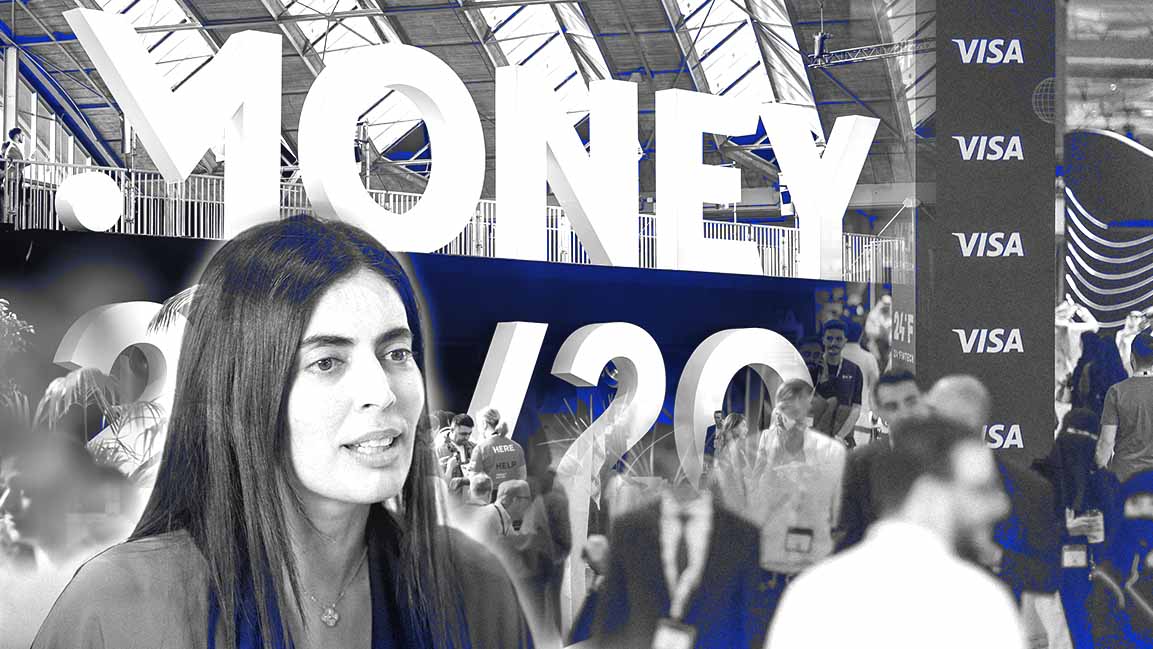- | Visa
Visa showcases innovation roadmap at the inaugural Money 20/20 Middle East
The three-day event saw milestones signaling both global confidence and local ambition

At Money 20/20 Middle East in Riyadh, AI-driven services, regulatory developments, cross-border collaboration, and inclusive innovation emerged as the main talking points.
As wide-ranging as these terms may be, they reflected a very real push from banks and financial regulatory authority to pure payments players and tech start-ups, including the biggest names in the business such as Visa and Saudi Central Bank, to allow businesses of all sizes to develop their financial services, embed finance directly into the everyday operations, transform fraud detection and customer experience and build resilient financial ecosystems.
As financial services become more deeply embedded in everyday platforms, the demand for faster payment networks continues to grow.
At the event, leading players offered insights into integrating financial services into their platforms and leveraging real-time payment networks to meet rising customer expectations.
The three-day event’s narrative, which brought together the world’s most influential voices in finance, technology, and regulation to define the next era of global fintech, laid the foundation for the future of money, built around human-centered innovation and collaboration to create opportunities for business growth.
ACCELERATING DIGITAL COMMERCE ENABLEMENT
Aiming to accelerate digital commerce enablement for merchants across the kingdom, Visa announced a groundbreaking payments infrastructure with a locally hosted acceptance platform. This means Saudi businesses can accept payments faster and more securely on CyberSource, a Visa Acceptance Platform offering, all through a single integration. The new product features enhance how merchants accept and manage payments, strongly focusing on flexibility, compliance, and interoperability.
“Hosting the Visa Acceptance Platform locally underscores the continued investment in our payments infrastructure in Saudi Arabia and reflects our commitment to innovating new ways to better serve our local merchant partners,” said Ali Bailoun, Visa’s Regional General Manager for Saudi Arabia, Bahrain, and Oman. “With Saudi Arabia already reaching 79% non-cash transactions, Visa’s expanded local payments infrastructure will help drive the next phase of growth to support Vision 2030’s digital economy ambitions.”
The Visa Acceptance Platform will provide banks, payment service providers, and merchants with faster, more reliable, and fully compliant payment processing.
CROSS-BORDER PAYMENT SOLUTIONS
The cross-border payments landscape is transforming rapidly, with cutting-edge payment solutions that are increasingly collaborative, with traditional and fintech players working together.
Amid growing demand for faster, more transparent cross-border payments in Saudi Arabia, Visa announced a new multi-year strategic partnership with Al Rajhi Bank to expand Visa Direct services to the bank’s customers in Saudi Arabia, allowing them to send money directly to bank accounts in more than 30 countries. The service offers real-time, secure, and convenient cross-border transfers.
“Saudi Arabia remains one of the world’s largest sources of personal remittances, with outbound flows reaching a near nine-year high of $4.13 billion in March 2025,” said Bailoun.
“Consumers increasingly expect their money to move as quickly and securely as their messages – and Visa Direct is making that possible. By expanding our partnership with Al Rajhi bank, we’re extending the reach of Visa Direct’s multi-rail capabilities, enabling people and businesses in Saudi Arabia to move money globally in real time with the security and reliability they trust,” he added.
REGULATION AND COLLABORATION
However, for many payment providers, cross-border transactions have long been challenging, requiring specialized infrastructure and expertise to manage risk and comply with regulatory requirements. H.E. Ayman M. Al-Sayari, Governor of the Saudi Central Bank (SAMA), stressed the importance of cross-border collaboration in building resilient financial ecosystems and ensuring emerging technologies receive the support needed to scale responsibly and inclusively.
AI and its newest offspring, generative AI, were big topics in Riyadh. No surprise there: AI has been a perennial topic in the payments space for some time. Whether it’s real-time fraud detection or AI-powered chatbots helping customers, financial institutions are using AI to make operations more efficient and customer experiences more personal.
With AI becoming ubiquitous across the sector, the challenge now is maintaining trust, regulatory alignment, and data integrity. Though sandboxes and ethical frameworks are already in place, experts warned that trust in AI systems could be undermined without clear, enforceable guidelines.
Khalid Al-Sharif, CEO of Abdul Latif Jameel Finance, said the next stage of AI adoption in finance will depend on coordination between regulators, financial institutions, and technology providers. “The next phase is about coordination,” he said. “Regulators must keep issuing workable standards, financial institutions must document and monitor models, and technology providers must build for local requirements rather than import generic systems.”
BIG PLAYERS MAKE DEBUT
In Saudi Arabia, digital payments have surged from 18% in 2016 to 79% in 2024, and the number of active fintech firms has doubled, reaching 280 companies by mid-2025. Marking a significant milestone in expanding digital accessibility and consumer convenience while integrating global payment platforms and enhancing cross-border financial connectivity, tech giant Google made its Saudi market debut, with Google Pay and Google Wallet launching through Al Rajhi Bank and Riyad Bank. The Saudi Central Bank also confirmed that Alipay+ would be enabled in 2026.
Singapore-based Dyna.Ai announced its expansion in the kingdom by launching its Agentic AI Suite and Arabic-first AI Employees. These digital teammates, including an AI credit underwriter, knowledge partner, and recruiter adviser, are designed to integrate into enterprise workflows and support compliance, customer service, and operational efficiency. Importantly, the suite was built with Arabic capabilities, enabling it to understand dialects, cultural nuances, and regulatory requirements specific to the kingdom.
SMART IDEAS, SHARP INSIGHTS
The gathering has drawn over 450 leading fintech brands, prominent speakers, and investors alongside key decision-makers, government leaders, and financial regulators, with a flurry of fresh announcements. From founders and fintech operators to policymakers and investors, speakers brought smart ideas and sharp insights on the industry’s direction. At the same time, sessions showcased how digital transformation, regulatory foresight, and cross-border partnerships are reshaping financial services and positioning Saudi Arabia as the protagonist of global fintech.
H.E. Mohammed A. Aljadaan, Saudi Arabia’s Minister of Finance and chairman of the Financial Sector Development Programme Committee, addressed the importance of integrating digital innovation to build a resilient and sustainable economy, while SAMA’s Al-Sayari highlighted that the fintech sector has attracted “market-leading cumulative investments of around SR9 billion ($2.39 billion), cementing its status as one of the most attractive sectors for investors.”
Other leading speakers, such as Dr. Mohammed Rahim of Standard Chartered Bank, Nameer Khan of the MENA Fintech Association, Tony Ashraf of BlackRock, and Sandra Ro of the Global Blockchain Business Council, addressed stablecoin resilience, AI-driven infrastructure, and digital trust. Nabeel Koshak, CEO and board member at the Saudi Venture Capital Company, explored the nation’s rapidly growing fintech start-up scene and investment ecosystem.
FINTECH SUPPORT
The kingdom’s fintech market has over 280 active firms and a capital market valued at $640 billion, positioning Riyadh as the primary gateway for global investors into the Middle East.
Visa, which has been enabling fintech startups to access its infrastructure and expertise through initiatives such as Fast Track and the Visa Everywhere, helping them launch on a broader scale by providing market visibility, recognized Saudi fintech barq, which has issued more than 6.5 million cards, enabled over 500 million payment transactions, and served users from more than 150 nationalities in a short period of time, as the fastest-growing fintech company in Central and Eastern Europe, the Middle East, and Africa.
Visa said that barq represents a leading model of innovation in the fintech sector, as it was able in a short time to build a solid user base and achieve exceptional performance in transaction volumes.
Additionally, its Innovation Centers in Dubai and Riyadh allow banks, fintechs, and regulators to test ideas, prototype, and bring solutions to market faster. Earlier, Dr. Saeeda Jaffar, SVP and Group Country Manager for the GCC at Visa, told Fast Company Middle East, “Our role at Visa is to be the bridge that makes those partnerships real, so the next great fintech idea in the GCC doesn’t stay a pitch. It becomes a product people use every day.”
The event also highlighted that investors are willing to pump funds and write big checks to enable fintech start-ups to expand their credit and payment products. Saudi Arabian start-up Tamara, a provider of a buy-now-pay-later payment system, secured an up to $2.4 billion financing package from backers including Goldman Sachs and Apollo.
In short, Money 20/20 Middle East was an invigorating few days, with plenty of evidence that trust using AI and privacy-enhancing technologies and innovation focused on value creation are at the forefront. The event facilitated many partnership signings, ensuring deal flow, and cemented Visa’s role as a rising force in Saudi Arabia’s rapidly evolving digital economy, with future-proof payment solutions.








































